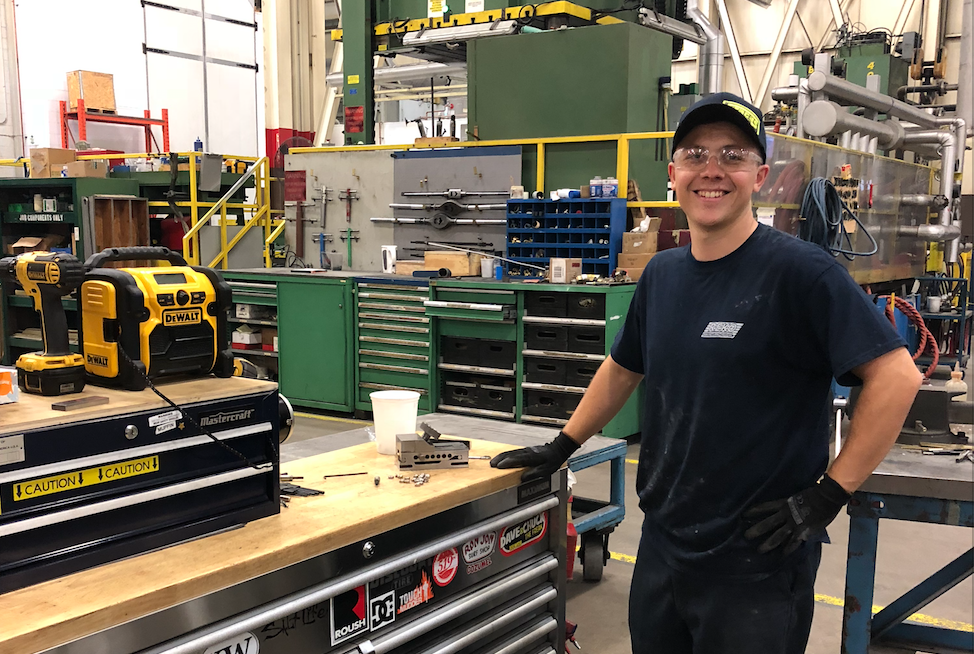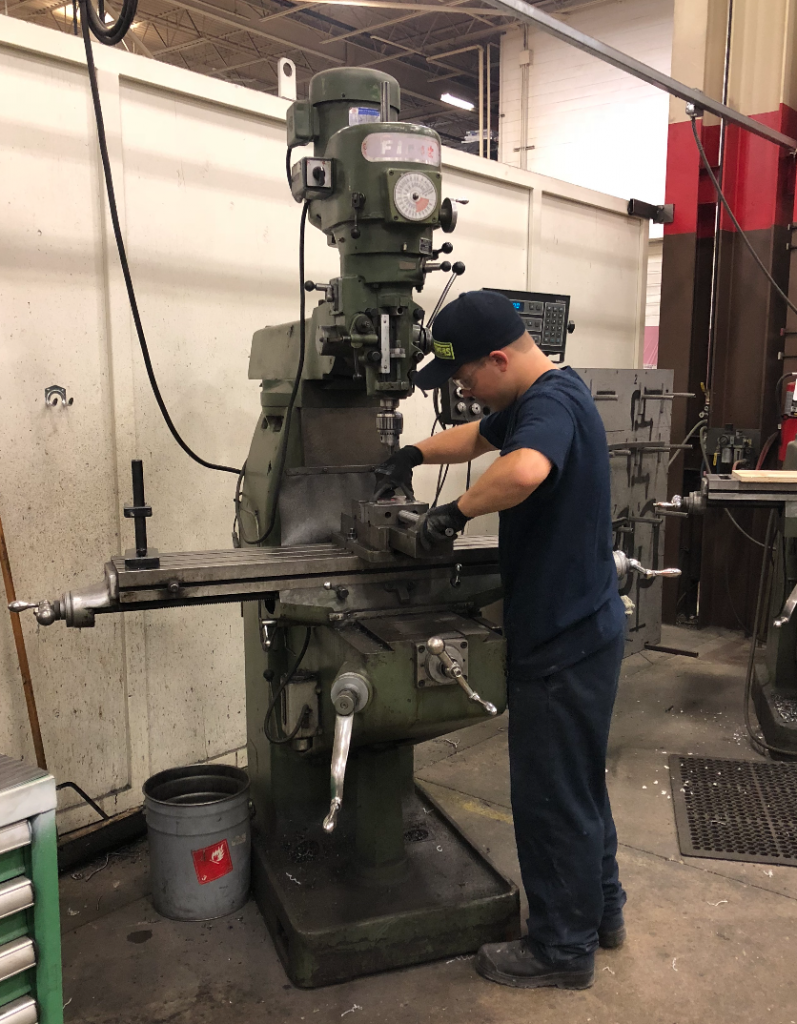In Windsor-Essex, only 7% of people over the age of 15 have a trades certificate. For those 7%, completing an apprenticeship is their educational route, going to school on a weekly basis while also working full-time in their trade.
As a tool and mould maker, Mitch Suchiu has been working full time at Reko and going to school at night for two years. Like many others in his field, he dreaded the idea of sitting behind a desk all day and yearned for the opportunity to say “I built that and it works”.
We spoke with Mitch about how he got interested in manufacturing and started his career at Reko International Group.

How did you get started in the trades?
I went to college first for computer system IT. I did one semester and knew I couldn’t sit behind a desk, I needed to be working with my hands. I took an 8 month welding course at the college and got my certificate. When I started looking for a job I applied to the Valiant Earn While You Learn program (now St. Clair College’s Training Program). I did 8 months there and then Reko hired me.
What was appealing about the trades?
It was being able to figure something out. Taking it apart and putting it back together. Improving something and have it go out the door and hearing feedback saying it worked. People working in engineering have to figure things out for the design but I wanted to be more hands on. I liked Lego when I was younger, all I did was put things together and take it apart, some things I probably shouldn’t have taken apart because I didn’t know how to fix it. But Lego was the extent of it because I didn’t want to get dirty but when I took the welding course it opened my eyes to the misconception that shops are dark and dingy.
What does an average day look like for you?
Get in around 6 o’clock and get my line up/to do list from the floor boss. Once I’m done with a project I’ll have my supervisor look it over since I’m still an apprentice. Once it is good then I’ll start something else or help someone else with a project. There are many different things to be done, I’ve even done a delivery for parts before. There’s never a typical day because there’s always a problem to solve and something that needs to be fixed. You’re never standing around waiting, it makes things interesting.
How do you like the in-class training?
The classroom is good because you learn the technical side of it but on the shop floor you learn how to get it done. It needs to be done on time and it needs to be done right. The teachers want you to succeed and they are professionals in their trade. They have actually done the work. Going to school after working 10 hours and then getting up and going to work the next morning can be a bit of a challenge, it’s a long day.

How is it being a young tradesperson?
It can be hard when you want to run controllers on the machines how you’ve been taught when the more senior people want to do it the way they were taught. But you’ve learned the new ways to do it and get it done. There’s new software too and younger workers can understand it a little quicker.
What’s been your greatest accomplishment so far?
Assembling a full tool by myself with limited guidance. Closing the tool, getting it on the truck and having it go out the door. Having that responsibility and hearing that the tool you built has no problems with it. Getting the respect from the senior staff after you do work for them and hearing that it was good. Seeing how you contributed to the success of the company. Knowing that I can be trusted with things, I don’t have people checking up on me anymore.
What happens once you’re done your apprenticeship?
I’ll graduate and write my red seal certification. Then I can say it’s official, I’ve earned it. You can show your employer the standard that you’re up to and get more responsibility. Moving up in the company towards a project manager would be good too, working towards new responsibility

